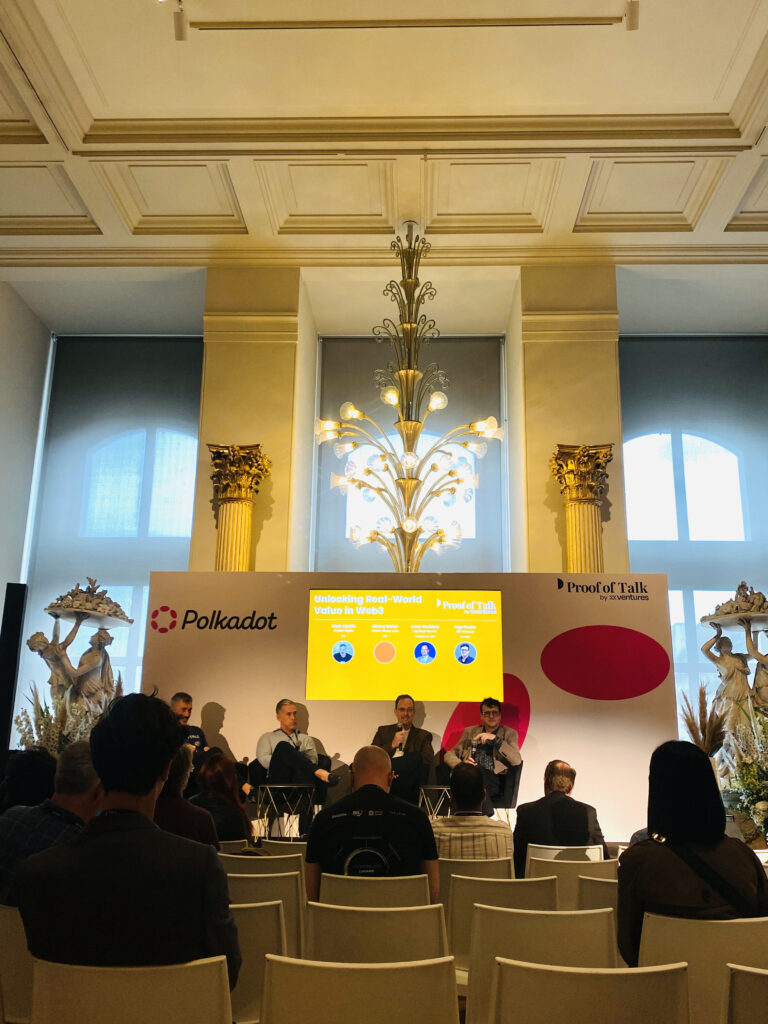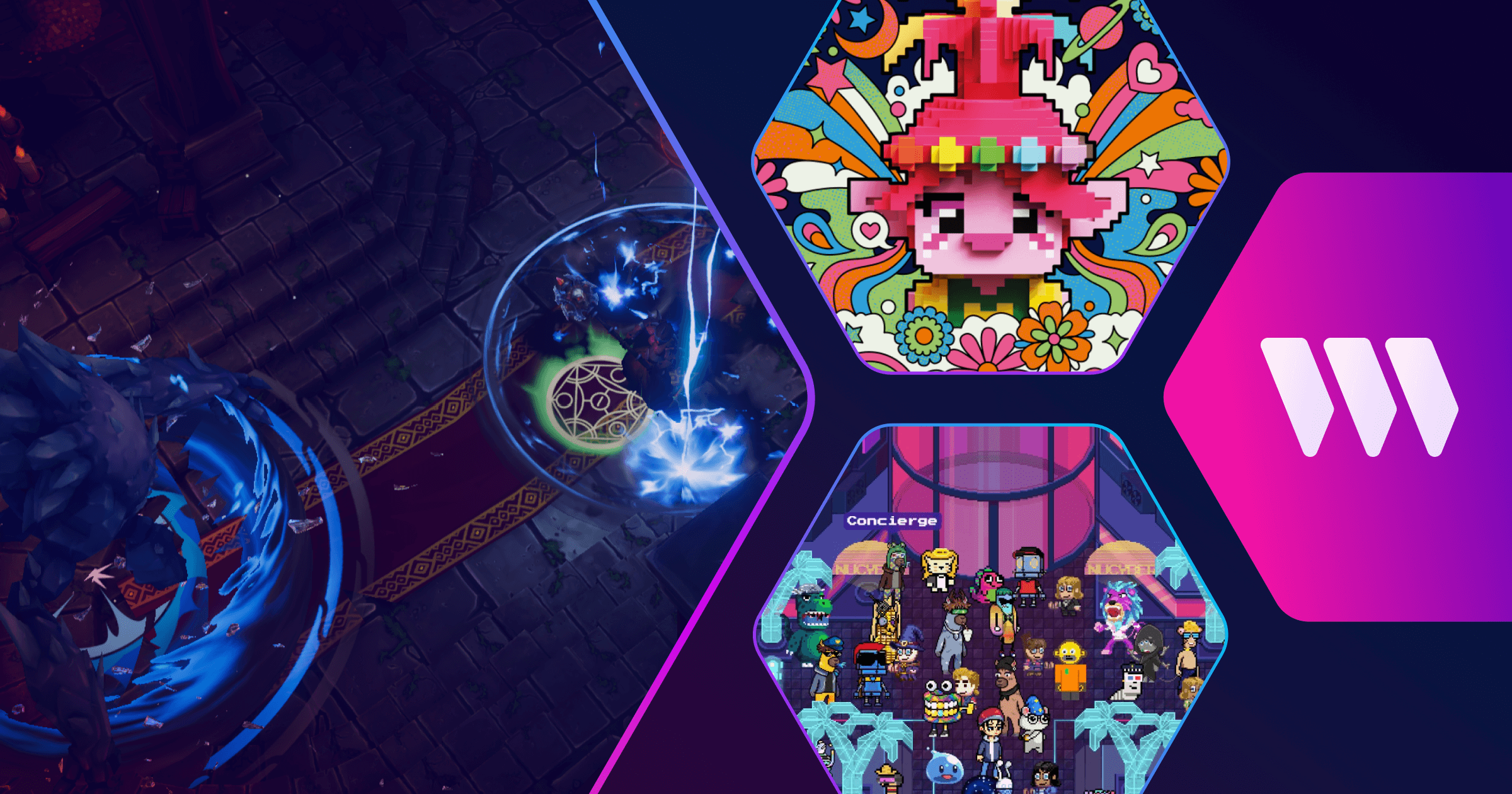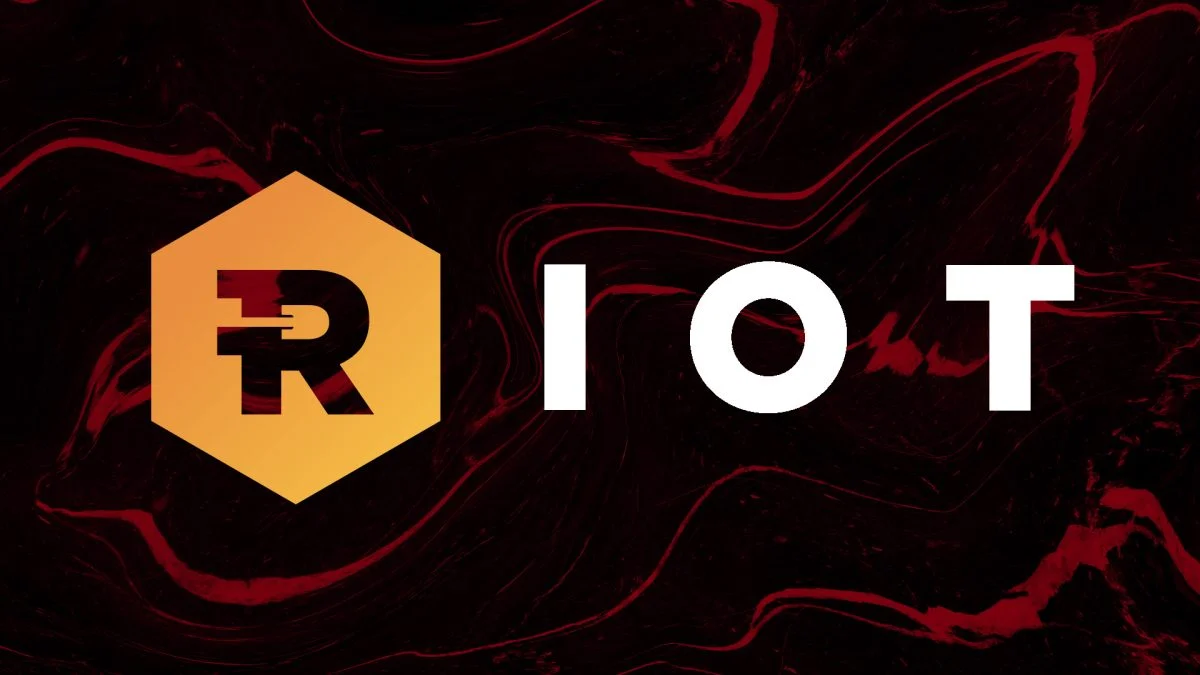Web3 and blockchain’s real user value was highlighted at the 2024 Proof of Talk event by France Mythical Games’ COO, who emphasized gaming as a “hero use case.”
The COO of France Mythical Games talked about the importance of gaming as a “hero use case” for concrete user value in the Web3 and blockchain space at the 2024 Proof of Talk event in Paris.
Delivering real user value is becoming increasingly important in the dynamic Web3 market. Leaders in the industry are pushing for a shift from speculative assets to valuable apps that enhance user experiences and provide long-term advantages.
Arron Goolsbey, president and chief operating officer of Mythical Games, Mickey Maher, chief business office of Project Liberty Labs, and Ingo Ruebe, founder of KILT Protocol, spoke on a panel titled “Unlocking Real-World Value in Web3” at the Proof of Talk 2024 conference in Paris. They argued in favor of applications that put the needs of users and long-term value first.

The panelists believed that, by utilizing the powerful features of blockchain technology, this user-centric vision could revolutionize several industries, including social media and gaming.
Together, their observations provided a fascinating picture of Web3’s future and potential to benefit users in various industries.
Web3 games a use case for “hero.”
When asked if games will drive the widespread adoption of Web3, Goolsbey responded with an upbeat “sky’s the limit” mentality, calling it a “great time to be in the industry.”
“There is so much more potential for all of us to produce real value for users in a mainstream capacity – and gaming and interactive entertainment is a hero use case for making that progress.”
More comparatively, Maher also covered the underuse of Web3 technologies, such as blockchain, and its potential.
He brought up the pattern of talks centered around memecoins, which is a fair observation given the frequent emergence of new memecoins depicting everything from different animals to public figures.
Given the weekly, if not daily, introduction of new memecoins, he correctly noted the trend of meme coin-focused talks. Memecoins can symbolize various objects, including political personalities and animals.
“Look, memecoins are entertaining, and there’s a current product market fit for them,” he remarked. It’s undeniable that people enjoy trading them and finding them appealing.
However, Liberty Protocol’s chief business officer pointed out that this market is very specialized. “It’s like having an iPhone where the only app is social casinos,” he said, comparing it with an iPhone. You would be grossly underutilizing its capabilities.”
“If you equate the iPhone or the analogy of the iPhone with the blockchain, then how do we leverage the blockchain and smart contracts to create the Ubers or the Instagrams or the Snapchats or the Telegrams of this technology, rather than just the social casino apps — because that’s really where we’re at right now.”
Benefits to Users
Due to their remarkable success in providing value to their users, Uber and Instagram were used as case studies. These apps are helpful for various purposes, such as promoting a small business, sharing photos with a large, global audience, or having a ride-sharing automobile ready whenever needed.
Although Goolsbey called the Web3 space’s technology “amazing,” he noted that the end user’s demands must now come first.
“We talk a lot about coins, we talk a lot about wallets, but we don’t talk a lot about individual people like the users, the end consumers.”
He claimed that players are those end users in the gaming industry, and over an extended length of time, they are “a great deal” about the players’ experiences and the value they derive from them.
He continued, “We believe that the technology’s value lies in its ability to prolong the players’ durable experience on our platform for significantly longer periods, which is very good for the user.” Additionally, it is highly beneficial for those who create and produce game content.
“There’s so much more that we can do if we just focus on making sure that the technology and the strategies that we employ generate more value for the people using the technology.”
According to Goolsbey, around two billion active players in the gaming business engage in gamified economies through expensive activities.
However, those are primarily oriented toward consumption and exist in a Web 2 environment.
The COO of Mythical Labs said, “I pay, I play, and when I’m done, I walk away from that investment because there’s nothing I can do with it inside of the walled garden.”
He claimed that by utilizing blockchain, this Web3 paradigm might be changed to “I can pay, I can play, I can curate.”
“After I finish that game, I could very easily find someone else who would appreciate the changes I have made to the game assets and the lessons I have learned from playing it, and they could purchase them from me in a very secure and carefully curated ‘open garden.'”



